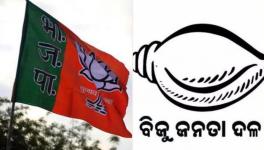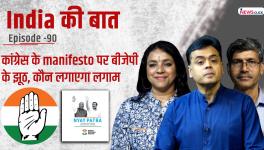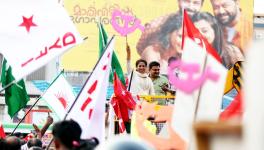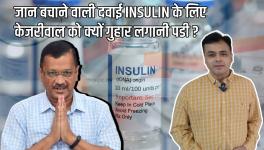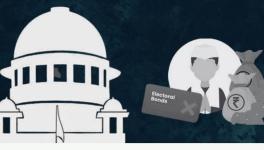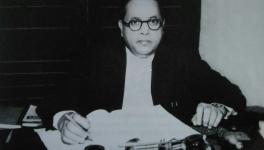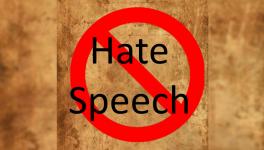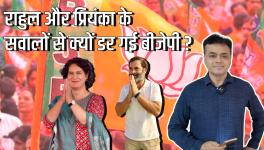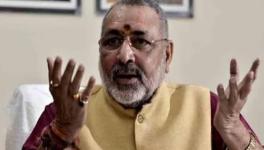Three Things Narendra Modi Missed, But Pinarayi Vijayan Didn't
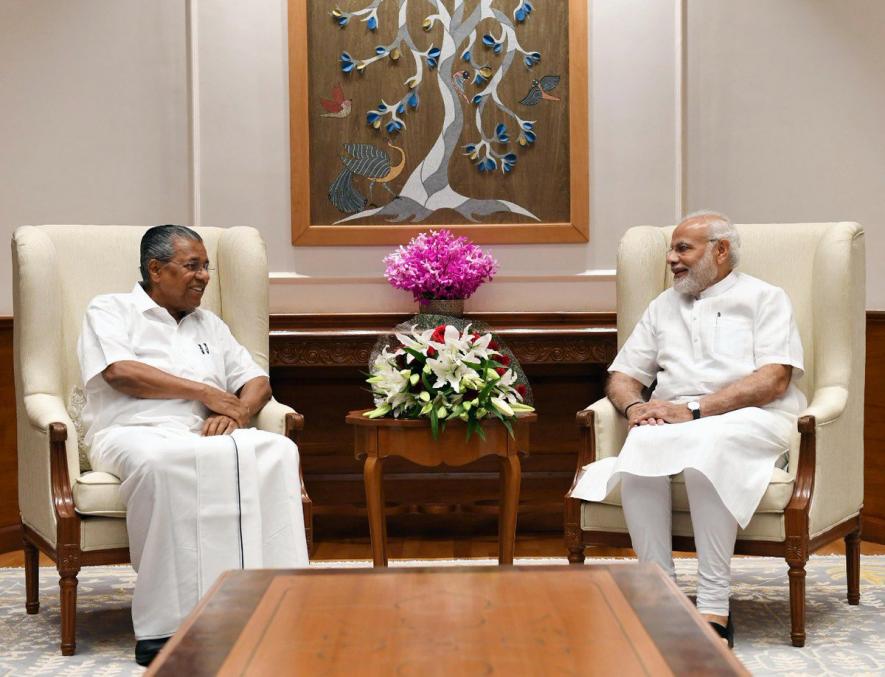
India's Prime Minister Narendra Modi announced in his address to the nation on 24 March that India will go into a country-wide lockdown from the next day onwards.
Kerala Chief Minister Pinarayi Vijayan had earlier addressed the press in the evening, as has been the practice for the past several days. The state government had already announced a lockdown the previous day.
In the Prime Minister's address, he basically made two points: (1) It is a lockdown, do not get out of your homes. (2) Rs. 15,000 crore is being allotted to beef up healthcare facilities to fight coronavirus.
A country-wide lockdown is welcome, and the Rs. 15,000 crore allocation is a decent starting point.
However, the manner of the announcement of the lockdown caused widespread confusion and hardship, as was seen in the mad scramble across the country by people desperately trying to get to their homes in crowded buses and trains, and the panic buying of essential goods. And Rs. 15,000 crore is still meagre, considering the fact that India (central government and state governments combined) spends only 1.28% of its GDP on healthcare.
To anybody who has been following the developments regarding Covid-19 in India, the inadequacies of the announcements made by the Prime Minister would be obvious. They appear particularly striking to those who have been following the daily press conferences of Kerala Chief Minister Pinarayi Vijayan. Here are three of the most important things that the central government missed, but the government of Kerala didn’t.
1. Details
Crucial details were shockingly lacking in Modi's speech. He repeatedly exhorted the people not to step out of their homes. Every passing minute, one expected that the Prime Minister would spell out the most basic thing to do — that is to reassure the people that shops selling essential items such as food and medicine would be open. Most people wouldn't be reading the official guidelines which are published by the government; the information they have at that moment would be limited by what the Prime Minister has said. The result — massive crowds in stores across the country.
As a result of the lockdown being announced all of a sudden without any alternative arrangements being announced, migrant workers flocked to bus terminals and train stations to somehow reach their home states. Overcrowding in the stations, buses and trains have further raised the danger of community transmission of the virus.
Contrast this with the press conference of Pinarayi Vijayan announcing the lockdown in Kerala on 23 March. Immediately after declaring lockdown, he assured the people that the supply of all essential items and medicine will be ensured, and that stores selling them will remain open. He talked in detail about the services that will be shut, and those that will remain open. There was still panic buying and long queues in front of stores in Kerala after the press conference, but nothing comparable to the swarm of people seen in many other parts of the country. Trust in the state government's ability to manage the crisis remains high with lakhs of people watching live Chief Minister's daily press conferences, in which he gives out updated figures, narrates the major developments, announces the measures taken by the government, and calmly counsels the people about what needs to be done.
(2) Ensuring food to ALL
For the vast majority of people in India, accessing food would turn out to be the most important issue in the coming weeks and months. It is going to make the difference between life and death. If the situation is badly managed, there could even be a famine.
Modi made no mention of the steps planned to address the issue. But today Finance Minister Nirmala Sitharaman announced free food rations for three months, which she says will benefit 80 crore poor people. This is indeed a welcome step. However, it still leaves out many crores of poor people from its coverage.
According to the government’s own figures, quoted in the Economic Survey 2018-19, almost 93% of India's workers are in the informal sector. Even when they work, they struggle to make ends meet. Now the situation is such that they cannot go to work for weeks; many of them have lost their jobs. Further, 85% of Indian families' average income is as low as Rs. 10,000 per month.
A quick calculation shows that the number of poor people who would be left out of the food scheme announced by the central government would be in the range of 34 crore to 45 crore. Why is the government doing this, one might ask.
One reason could be that they seriously underestimate the number of poor people, although there are enough figures from official sources which contradict such false calculations.
The problems with “targeting”
The second reason is that our policymakers still rely on the flawed paradigm of “targeting” which successive central governments have used to weaken India’s public distribution system (PDS). Earlier India had a universal PDS, but now what we have is a targeted PDS with subsidised food available only to those belonging to the “Below Poverty Line” (BPL) category. But the fact of the matter is that a very large section of people who belong to the “Above Poverty Line” (APL) category also are actually poor, as we saw earlier. This is why there have been demands in the recent weeks, in the context of the current crisis, that free food rations should be provided to all without APL and BPL distinction. India has a huge stockpile of 7.5 crore tonnes of food grains in the Food Corporation of India godowns, so the requirement can be easily met.
Under normal circumstances, those who are rich and who have the means of accessing food are very unlikely to rely on the PDS. They prefer to buy costlier varieties of food grains and other items from the market rather than the items available through PDS. Thus the vast majority of people who rely on PDS in a universal PDS system would be those who really need it – they “self-select” themselves. Hence there is no need to worry unduly about the PDS being used by the “undeserving”. Even if some so-called “undeserving” use it, the costs are bearable for the central government.
Some might argue that the other announcements of today, such as cash transfers to farmers, the poor among elderly, widows and disabled, would cover those who have been left out. But even if one includes the people who will benefit from other schemes announced today, many crores of poor people will still be left out. And the Rs. 500 per month for women who are Jan Dhan Yojana account holders that has been announced is clearly inadequate.
Moreover, direct provision of food through PDS is the superior option to ensure food security. This is so especially in the context of a crisis when possibilities of hoarding and supply shocks are high. Providing cash transfers can supplement the effort, but it would still leave large gaps, with large sections of the population unable to access food in adequate quantities.
Approach of the Kerala government
The approach that the Kerala government has adopted is in stark contrast to that of the central government. Chief Minister Pinarayi Vijayan announced on 19 March that food grains will be distributed for free to everybody in the state for a month. Food for anganwadi children are being delivered at home. Those who are under quarantine at home and who find it difficult to access food will also be provided food.
In the subsequent days, he announced more measures.
Everybody who will find it difficult to sustain themselves if they can't go to work on a daily basis, such as daily wage workers, shall be identified. Senior citizens staying alone, disabled people, and others who cannot cook for themselves due to illness will also be located. Ward-level committees of Local Self Government institutions — panchayats, municipalities and municipal corporations — will do this work with the help of volunteers. The committees and volunteers will ensure that the needy will receive food and medicine. Community kitchens will be set up by the local bodies to cook food, which will be delivered to the homes of the needy.
Some people might be reluctant to tell others directly that they are in need of food. Some others might be missed out during the identification process. For such people, a phone number will be provided. They can call that number, and food will be delivered to them.
"Nobody should go hungry in Kerala," the Chief Minister said repeatedly during the press conference on Wednesday.
Kerala's planning to ensure the food security of its people doesn't end here. This is the time of paddy harvest in several districts. The harvest has to be done now, said the Chief Minister on Wednesday. If it is delayed due to the lockdown, the crops will be damaged once rains start in June. Therefore harvest will be considered an essential service. Combine harvesters will be used for the purpose so that overcrowding in the fields can be avoided, and District Collectors have been given instructions to ensure harvesting at all places. Measures to safely collect and store the harvested paddy will also be taken. Panchayats and the cooperatives of the area shall jointly arrive at decisions regarding places to store the harvested paddy. The Chief Minister also made an appeal to families across the state to grow vegetables at their homes, to bolster their availability in the coming days.
Evidently, concern towards the underprivileged and attention to detail have been the hallmarks of the Left Democratic Front government's handling of the coronavirus outbreak.
(3) Addressing overcrowding at homes
The third point is regarding the practical aspects of social distancing in a country with rampant overcrowding and homelessness.
Prime Minister Modi asked the people of India to stay at their homes, telling them not to cross the "lakshman rekha" outside their doors.
But millions of Indians stay in small houses with not enough space for all the family members to ensure physical distancing. It gets worse if a family member is suspected of being infected and has to be quarantined in a room. There are millions of families in the country who don't have the space for that. And what will the homeless do?
Modi chose to remain silent on such critical issues.
Pinarayi Vijayan, on the other hand, went into the details of what is required, educating the people and outlining the arrangements being made by the government:
"Quarantine doesn't mean just living at home. It means living in one room. It should be a room with an attached bathroom which the person can use exclusively. Only one person should do the necessary assistance for the person in quarantine. Plates for that person should be kept separately. Soap, hand sanitiser etc. should be ensured. Health volunteers will visit the home every day."
"If such arrangements cannot be made at a home, the person should not live there. Quarantine won't be proper. Such people will be shifted to a public isolation facility with the necessary arrangements," the Kerala Chief Minister said.
What about the homeless? Pinarayi Vijayan talked about the homeless people who sleep in shop verandahs, roadsides etc. Each local self-government institution will identify such people in their respective areas, put them up together in common facilities with adequate space for them to sleep, he said. They will be provided food as well.
If a state government with limited resources is doing so much, the central government with vastly more resources can, and should, do a lot more. But it needs to have a basic commitment to the people first.
The coronavirus outbreak has exposed the dangers associated with precarious livelihoods, lack of food security, and inadequate housing in India, apart from the pitiful state of our public healthcare itself.
Along with the demand for a greatly expanded and comprehensive public healthcare system, this should be an occasion for us to raise the demands for a universal public distribution system (PDS) to ensure food security to all, and for a massive public housing programme in India.
[Subin Dennis is a Researcher at Tricontinental: Institute for Social Research.]
Get the latest reports & analysis with people's perspective on Protests, movements & deep analytical videos, discussions of the current affairs in your Telegram app. Subscribe to NewsClick's Telegram channel & get Real-Time updates on stories, as they get published on our website.









